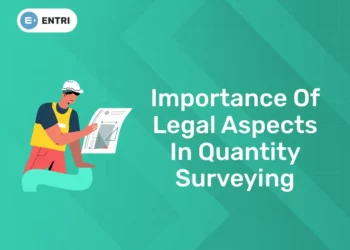Table of Contents
A mutual fund is a collective investment scheme. It raises money from investors and invests it in stocks, bonds, money market instruments and other assets. In other words, mutual funds provide an opportunity to investors to earn an income or build their wealth through professional management of funds. The money for Mutual funds is managed by a team of experts also known as professional fund manager or portfolio manager. They should have specialized financial knowledge and skillsets to deal the investors’ money as a professional.
There are various type of mutual funds are available. Investors can choose any kind of mutual fund scheme based on their risk profile, investment plan and goals. Mutual Fund offers multiple investment options like one time investment or instalments via a Systematic Investment Plan (SIP). Most mutual fund schemes are liquid and cost-efficient.
Mutual funds are classified into various types on the basis of its structure, asset class, investment plans and risk profile. Based on structure mutual funds are divided into:- Open-ended, Close-ended and Interval funds. The fundamental difference between an open-ended mutual scheme and close-ended mutual scheme is that open-ended fund scheme offers new units to the investors on continuous basis, there is no fixed maturity period. A closed ended fund scheme offers new units for a limited period of time. Read the article given-below. It will be explained all the important difference between an open-ended and close-ended mutual schemes in detailed manner.
Click Here To Attempt A Free Mock Test
Open Ended Mutual Funds
- An open-ended mutual funds are available for repurchase and subscription continuously. It will issue the share to investors on the basis of net asset value(NAV) per share. According to guidelines, investors can purchase share from the mutual fund rather than from existing shareholders.
- An investor can purchase or sell units at any time after the NFO period ends.
- This scheme does not have any limitation on the number of shares issued by the fund.
- There is no maturity period for open-ended mutual funds.
- An open-end mutual fund is a good option to the people who wish to start investments with tiny amount.
- Investors can invest via SIPs.
Benefits and Dis Advantages
- Liquidity: Investors can redeem their units of the funds at any time they want. Moreover, the investors can redeem the units as per the net asset value.
- Systematic options available: It allow investors to make use of various systematic plans (SIPs, SWPs and STPs), for investments and withdrawal.
- Professionally and experienced management: Highly skilled and experienced fund managers to make the right investment decision for the investors.
- Higher returns: It provide higher returns to investor with a short-term investment.
- Open-ended funds do not have any fixed maturity period.
- These funds are not traded on stock exchanges.
Close Ended Mutual Funds
- Investors can purchase the units of a close-ended mutual fund scheme only during the new fund offer (NFO)period. The units can withdraw only after the tenure of the scheme is over.
- A Closed-ended fund is a type of investment company whose share are traded on the open market like an exchange-traded fund (ETF).
- Closed-ended funds are appropriate for investors who are interested in long term investments.
- The maturity period of a closed-ended is 3 to 7 years.
Benefits and Dis Advantages
- Stability: Investors can redeem their units of the fund after the expiry of the maturity period. This will help the fund managers they need not worry about the frequent cash inflows and outflows. It will provide an opportunity to fund manager to create a strategy to achieve the investment goals of the plan.
- Market Price based on demand and supply: Units of these schemes are sold on the trade at prices determined by the demand and supply of the units of the scheme.
- Long term investment option: This will be a better option for investors with a long-term investment plan.
- Under this scheme, investor will not be able to sell their units of the fund in case of emergency.
- There is no provision for Systematic Investment Plans(SIPs).This increases risk among investors.
Get the latest updates on bank exams, Download Entri App
Comparison Between Open-Ended and Closed-Ended Mutual Funds
- An Open-ended fund is an excellent option for investors can buy or sell the units any time from mutual fund house where as close-ended funds have a fixed maturity period to purchase or sell the units from the organized stock exchange.
- Open-ended schemes offer an option to invest in small amount through SPIs, whereas this facility is not available under Close-ended scheme.
- The great difference between open-ended and closed-ended mutual funds, is that Open -ended funds offer high liquidity compared to closed-ended funds.
- Investors who have interest in invest for long term period, they can opt close-ended funds that offer high stability.
Conclusion
Sometimes it may be a challenge to investors to choose a mutual fund scheme for investment goals. Nevertheless, one can decide their investment based on the performance of the fund. It is driven by nature of the fund, fund manager and their investment philosophy. Before investing in a mutual fund is very important to set a financial purpose. This will help the individuals can choose a fund scheme based on their investment plan.











